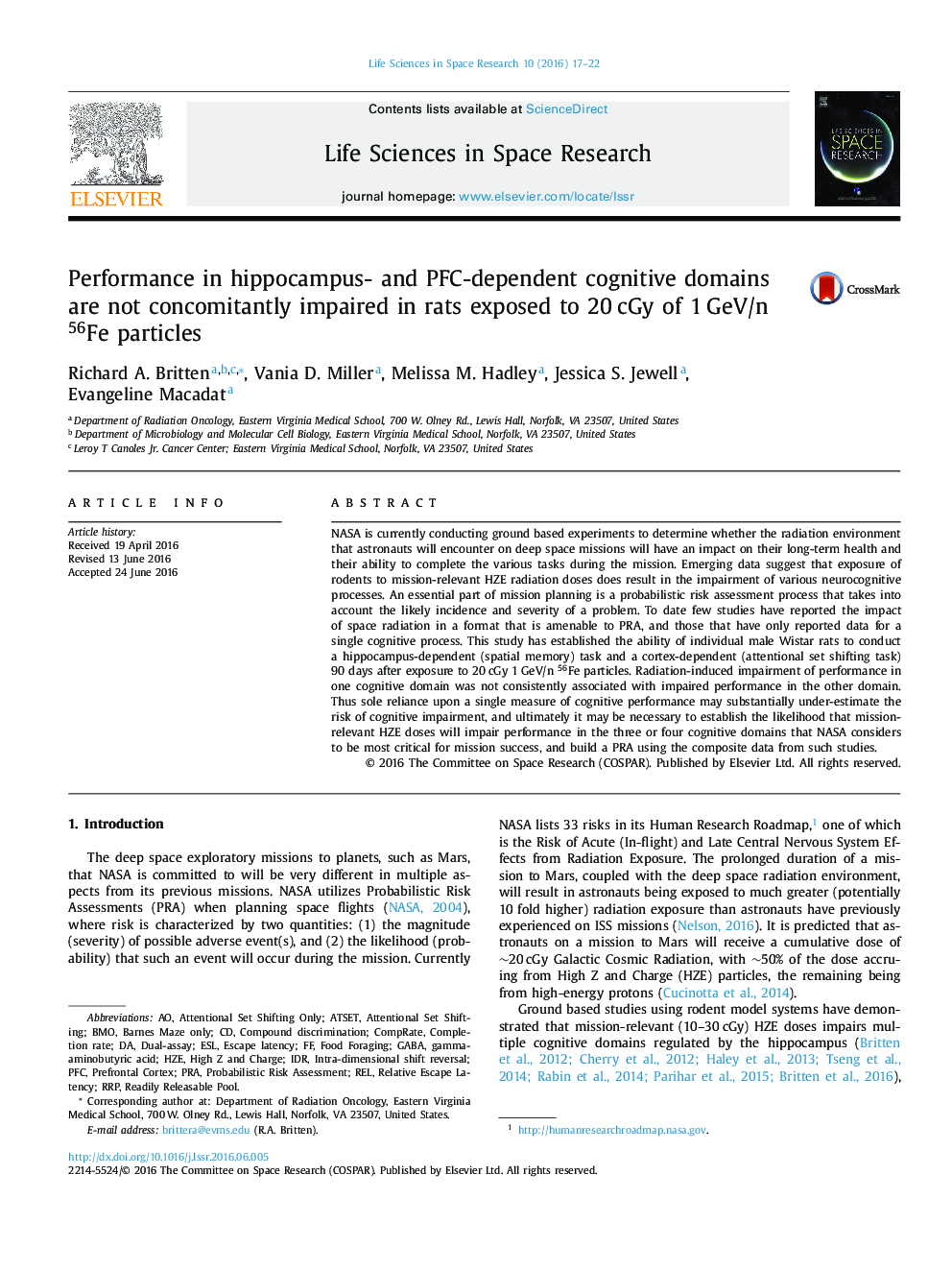| Article ID | Journal | Published Year | Pages | File Type |
|---|---|---|---|---|
| 1879959 | Life Sciences in Space Research | 2016 | 6 Pages |
NASA is currently conducting ground based experiments to determine whether the radiation environment that astronauts will encounter on deep space missions will have an impact on their long-term health and their ability to complete the various tasks during the mission. Emerging data suggest that exposure of rodents to mission-relevant HZE radiation doses does result in the impairment of various neurocognitive processes. An essential part of mission planning is a probabilistic risk assessment process that takes into account the likely incidence and severity of a problem. To date few studies have reported the impact of space radiation in a format that is amenable to PRA, and those that have only reported data for a single cognitive process. This study has established the ability of individual male Wistar rats to conduct a hippocampus-dependent (spatial memory) task and a cortex-dependent (attentional set shifting task) 90 days after exposure to 20 cGy 1 GeV/n 56Fe particles. Radiation-induced impairment of performance in one cognitive domain was not consistently associated with impaired performance in the other domain. Thus sole reliance upon a single measure of cognitive performance may substantially under-estimate the risk of cognitive impairment, and ultimately it may be necessary to establish the likelihood that mission-relevant HZE doses will impair performance in the three or four cognitive domains that NASA considers to be most critical for mission success, and build a PRA using the composite data from such studies.
